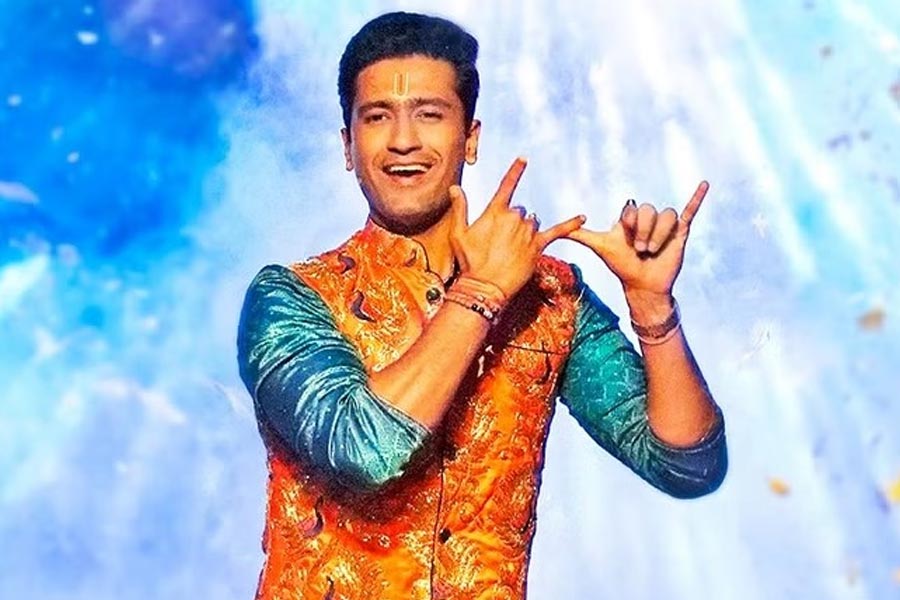After Zara Hatke Zara Bachke a few months ago, Vicky Kaushal is back with yet another story set in a small town in India. The Great Indian Family, helmed by Vijay Krishna Acharya, tends to get predictable and preachy but its underlying message of religious tolerance is heartwarming nonetheless. And Kaushal undoubtedly is the driving force.
Set in the north Indian town of Balrampur, The Great Indian Family revolves around a family of pandits, the Tripathis. The patriarch, Siyaram Tripathi (Kumud Mishra), is a revered figure in town, who believes in running the household democratically. For any crucial decision concerning the family — from conducting a mundan ceremony to whether a DNA test be conducted to ascertain the paternity of his son — he holds voting among the members via secret ballot.
Siyaram’s son Ved Vyas (Vicky Kaushal) is a celebrated bhajan singer in Balrampur, so much so that he has earned the sobriquet of Bhajan Kumar. Beyond the facade of devotion lies a young man craving for a normal life. Ved wants a girlfriend, but the girls in Balrampur revere him for his spiritual ardour.
While Ved struggles to balance his public persona and personal desires, a letter arrives claiming that he is not of this family; he was actually born to Muslim parents. The information pulls the rug from under Ved’s feet — he grapples with the attack on his religious faith on the one hand and the sudden discriminatory behaviour of his family and society at large. It doesn’t help that Siyaram’s rival, another pandit named Mishra (Yashpal Sharma), uses the opportunity to settle old scores against the Tripathis.
Director Vijay Krishna Acharya — who has helmed films like Tashan, Dhoom 3 and Thugs of Hindostan in the past — uses familiar tropes to drive home the message of religious harmony.
In a funny yet poignant scene, where Ved decides to adopt the Muslim way of life after being driven out of his home, he sits down to eat with his Muslim friend Abdul and is dismayed to watch that Abdul breaks bread the same way he does.
To his credit, Acharya refrains from stereotyping the Muslim family that Ved puts up with after leaving home. There are no skull-cap wearing, kohl-eyed men. Instead, one of the family members was an actor in the Ramleela troupe until recently.
Despite its noble intentions, the film gets lost in its melodrama and monologues, specially post-intermission. The loud background score serves more as a distraction. The big reveal about Ved’s past is also straight out of a 1980s Bollywood potboiler.
However, whenever you feel the movie’s tempo slipping, Vicky Kaushal holds your attention with his screen presence. He becomes that young man fighting through inner turmoil and anger at having to redefine his social identity while also waking up to a greater realisation about humanity.
Manushi Chhillar, who plays Ved’s lady love, is intended to be a strong-willed and independent woman but doesn’t end up with a meaty role. Among the supporting cast, Kumud Mishra and Manoj Pahwa, as Ved’s father and uncle, respectively, deliver impactful performances.











